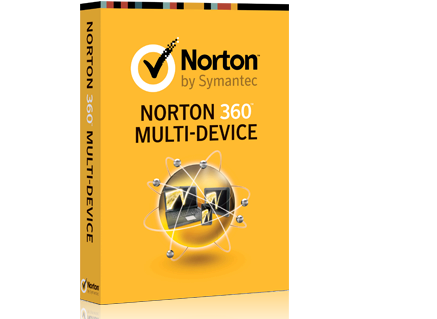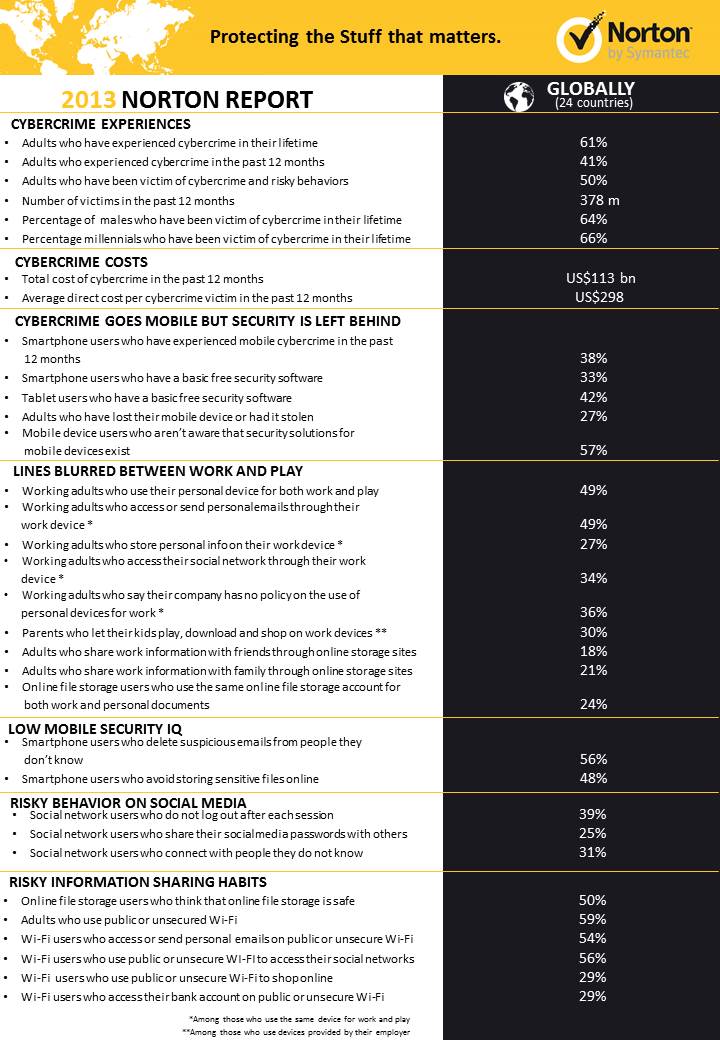Norton has launched the latest versions of its core security products. The new versions offer advanced repair capabilities, are simple to setup, and are compatible with Windows 8.1 features.
The company says “many innovative protection technologies in terms of security, performance and usability” have been added and improved in the latest versions of Norton 360 Multi-Device, Norton Internet Security and Norton AntiVirus.
Foremost among these improvements is the solutions’ new advanced repair capabilities which empower a broader set of Internet-connected resources to repair with greater consistency. Aside from Windows 8/8.1 support, another important enhancement is the improved behavioral-based protection engine called SONAR, which operates on the premise that while physical nature of malware changes, its behavior often does not. As a result, SONAR now allows the new versions to detect and shut down malware that attempts to disguise its bad behavior by operating inside legitimate Windows processes.
The new solutions also feature SONAR-assisted remediation and cleanup which removes and cleanup malware attempts by saving the evidence of the attack for later use by Norton’s repair technologies. It also ensures that all traces of a malware attack are removed and a system is returned to its original state. With its Windows 8 app remediation, Windows apps are scanned for threats and remove them.
Simplified setup
The setup and management of the new versions were made simple using simpler interface so users can quickly download and install the latest versions for their device type and subsequently ensure that all their devices are protected. Besides, these new product releases have improved boot time by 15%, install speed by 10% and memory usage during scan by 100MBs for a fastest and lightest performance.
The Norton Identity Safe has also enhanced its password management tool to remember, secure and automatically enter usernames and passwords so they can’t get lost or stolen. This feature also includes improved form filling, with drag- and- drop functionality and full vault searches available directly from the toolbar to help manage passwords even more securely and conveniently.
The new product releases are available in the Philippines by the end of the year through authorized resellers of MSI-ECS Philippines, Inc., the exclusive distributor of Norton products in the country. The product can also be purchased online via Norton’s Web site.
The MSRP for Norton 360 Multi-Device is PHP3,540, with one year protection for up to five devices. For Norton Internet Security, MSRP is PHP1,100, with one year protection for one PC, while the MSRP for Norton AntiVirus is PHP980, coupled with one year protection for one PC.
Increase in online attacks
A Symantec Security Threat Report showed that online attacks increased 30% in 2012, driven by the easy availability of malware toolkits and the high frequency of unpatched vulnerabilities on Web sites. Globally, according to the 2013 Norton Report, more than one million users were victimized by cybercrime attacks in a day. Majority of these cybercrime victims are males, and those who were born from 1983 to Year 2000 or the so-called Millenials. Mobile device users, social network users, public/unsecured Wi-Fi users, emerging market, and parent of children aged 8-17 are affected most by cybercrimes as most of them are not aware that security solutions for mobile devices exist.
These attacks have led to massive financial losses as a result of cybercrimes such as fraud, repairs, phishing, theft and scams. The report says that 83% of direct financial loss is directly correlated to these evolving threats. In fact, it was claimed that while the number of online adults who have experienced cybercrime has dropped from 46% in 2012 to 41% in 2013, the average cost per victim has risen by 50% to US$298 in 2013, from US$197 in 2012.
“Today’s cybercriminals are using more sophisticated attacks, such as ransomware and spear-phishing, which yield them more money per attack than ever before,” said Philip Routley, Symantec’s Product Marketing Manager, Consumer and SMB. “With 49% of consumers using their personal mobile device for both work and play, this creates entirely new security risks for enterprises as cybercriminals have the potential to access even more valuable information.”
Routley added that consumers can be attacked even when they visit a legitimate Web site, an attack that puts their devices and personal information at risk.
“With the latest Norton releases, we are delivering the comprehensive security required to protect today’s devices against new and evolving threats, without impacting performance,” Routley said.
Online culture of Filipinos
Meanwhile, Sonnie Santos, Strategist for Online Prevention at Symantec, discussed about the online culture of the Filipinos and defined the risks involved on cyberattacks. He said that the Philippines is the fastest growing nation in terms of Internet access, which grew by 22%.. Internet penetration rate is between 30% to 33%, where the bulk or 96% is heavily engaged in social media. In terms of number of devices, 94 million cellphones is circulating in the country in 2011 while five-million of the total population are smartphone users using mobile Internet.
Santos also mentioned that the device behavior of Asians, not necessarily Filipinos, is directly correlated to the increase in mobile attacks or mobile cybercrime, especially now that the access using mobile devices grew by five percent. He cited factors that contribute to the growth in mobile access as Filipinos use smartphone while traveling, Filipinos use the company computers to do online activity when at work; and when at home, Filipinos use tablets to play games and do other activities.
Santos also mentioned other factors that expose users to risks. Once users are on the Web, they are empowered to do whatever they want to do. Users, particularly the young generation, want to enhance their creativity by producing videos and other activities online.
The ability to share, which is a unique quality of the Filipinos, where we are not conscious about our personal privacy and the privacy of other people and even of our family involves risk. In fact, the 2013Norton Report finds out that many consumers are engaging in risky behavior that has them playing a game of chance with their private information, putting them at risk of becoming the next victim of online criminals.
“We should not hand personal information on a silver platter. It may be cute but it’s risky, warns Santos. “We must also be careful on who to add on our network.”













































































































